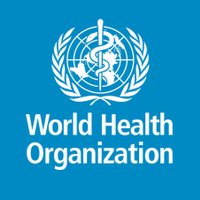Clean environment roadmap endorsed
 Beating noncommunicable diseases, and promoting health, are issues for everyone and every area of government.
Beating noncommunicable diseases, and promoting health, are issues for everyone and every area of government.
Common, preventable risk factors, such as physical inactivity, unhealthy diet and the harmful use of alcohol and tobacco consumption, have long been recognised risks to health.
What is less well known is that environmental factors are also main causes of noncommunicable diseases (NCDs).
Ambient (outdoor) and household air pollution together caused more than 6 million deaths from cardiovascular diseases, chronic respiratory diseases and lung cancer in 2012.
The World Health Organisations (WHO) has just release a report about preventing noncommunicable diseases by reducing environmental risk factors.
And it says that other important environmental risks include second-hand tobacco smoke, exposure to chemicals, radiation and noise, and occupational risks.
Noncommunicable diseases are now the largest cause of death and disease worldwide, and numbers are on the rise.
Ever more people require treatment, and health-care costs are growing.
And achieving a healthy and sustainable environment is a key ingredient for preventing disease and enabling viable health care.
Globally, 23 per cent of all deaths could be prevented through healthier environments.
Nearly two thirds of the 12.6 million deaths caused by the environment each year are due to noncommunicable diseases.
Ambient and household air pollution caused, respectively, 2.8 and 3.7 million NCD deaths from ischaemic heart disease (IHD), stroke, chronic obstructive pulmonary disease (COPD) and lung cancer in 2012.
Worldwide, almost one third of the cardiovascular disease burden is attributable to ambient and household air pollution (13 per cent and 17 per cent respectively), second-hand tobacco smoke (3 per cent) and exposure to lead (2 per cent).
Globally, 29 per cent of COPD deaths are attributable to household air pollution, 8 per cent ambient and 11 per cent in workplaces.
Growing evidence indicates that early life exposure to environmental risks, such as chemicals and air pollutants, might increase noncommunicable diseases risk throughout the life course.
Strategies on access to clean energies, clean and efficient transport, control of industrial emissions, the sound use of chemicals, and a safe workplace should be addressed for the prevention of cardiovascular and chronic respiratory diseases.
Reducing air pollution from transport, energy generation and industrial missions; and exposures to ionizing and UV radiation, and chemicals, such as solvents, pesticides, asbestos and formaldehyde, can prevent lung and other cancers.
Workers in certain occupations are at particular risk.
Healthier and safer workplaces could prevent around 1 million NCD deaths each year, including from COPD, pneumoconiosis, mesothelioma, lung and larynx cancers and leukaemia.
“The WHO estimates that 4.3 million people a year die from exposure to household air pollution globally, of which almost 120,000 are in the WHO European region,” Leen Meulenbergs, the WHO’s representative to the EU, told EUobserver.
“While deaths from ambient air pollution occur in all European countries, regardless of their income level, those from household air pollution are over five times greater in low- and middle-income countries than in wealthier ones,” Meulenbergs added.
Last month heads of state and government and ministers from around the world committed to new and bold action to reduce suffering and death from noncommunicable diseases, primarily heart and lung diseases, cancers and diabetes, the world’s leading killers.
They endorsed the ‘Montevideo Roadmap 2018-2030 on NCDs as a Sustainable Development Priority’ at the opening of the three-day Global Conference on Noncommunicable Diseases in Montevideo, hosted by WHO and the Presidency of Uruguay.
The Montevideo Roadmap highlights the need for coordinated and coherent action from all sectors and the whole of society, as many of the main drivers of ill health lie outside the control of health ministries, systems and professionals.
And non-state actors, including civil society and industry, have important roles to play.
It also points out that the bulk of noncommunicable disease deaths could have been prevented by action against tobacco, air pollution, unhealthy diets, physical inactivity, and harmful use of alcohol – as well as by improved disease detection and treatment.
And speaking at the event, the President of Uruguay, Dr Tabaré Vázquez, said: “Beating NCDs, and promoting health, are issues for everyone and across every area of government.
“Finance ministries save lives by taxing tobacco, alcohol and sugary drinks, by cutting consumption and raising revenues to treat NCDs.
“Trade and investment agreements should not be used as an excuse to look the other way, wash our hands and not protect the public health of our citizens.
“Education ministries need to ensure our youth are well informed and taught how to make the healthy choice, that schools make available healthy food and provide opportunities for play and recreation.”















